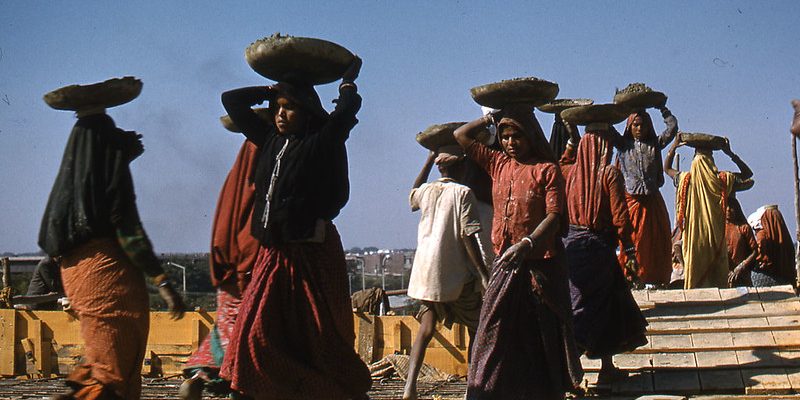
Stark disparities in India’s labour market based on caste, gender and religion!
Karma Global’s Alliance with A Leading Law Firm in India, Has Established Excellent Reputation for Its Integrity and Pragmatic Approach in Effectively Navigating Legal Entanglements Bothering Its Clientele
Karma Global, besides its foray into specialized areas like staffing, on-boarding, payroll, curbing regulatory risk, auditing and abiding by all labour law related compliance, has joined hands with topmost Indian legal firm in order to further strengthen its enduring relationships with its over 500+ clients with cost effective and time bound solutions.
Stark disparities in India’s labour market based on caste, gender and religion!
Social identity plays a significant role in determining the type of employment a person is likely to be engaged in and their earnings across India, said a recent report by the Centre for Sustainable Employment at Azim Premji University.
The report found that significant earnings gaps exist in terms of gender, caste and religion among different social groups.
The largest earnings gap is based on gender, with women reporting earnings at only 40% of those of men in self-employment, followed by 64% of men in casual wage jobs, and 76% of men in regular wage jobs.
Caste discrimination is more prevalent in the public sector vis à vis the private sector since the latter runs on the principle of meritocracy as opposed to positive discrimination to empower groups. However, this unexplained gender disparity is more pronounced in rural areas as compared to urban areas.
Entrepreneurship and caste
People belonging to the Scheduled Caste and Scheduled Tribe communities own very few enterprises as compared to their share in the population in urban and rural areas. A wage gap exists between people belonging to the general category and others much like the gap between men and women. This has also been seen in the case of MSMEs.
Discrimination is the cause of all evil!
There are groups of people in all societies who are systematically disadvantaged because they are discriminated against. Discrimination occurs in public institutions, such as the legal system or the education and health services, as well as in the household and in the community. Men, women and children who are discriminated against often end up excluded from society, the economy and political participation. They are more likely to be poor. They are more likely to be denied access to income, assets and services. These people suffer from social exclusion – and poverty reduction is harder as a result.
Announcement of sub caste wise census of population
The Bihar Government recently announced the sub-caste-wise census population numbers for the state. Looking at the numbers closely, the OBCs (Other Backward Classes) -further divided into BCs (Backward Classes) and EBCs (Extremely Backward Classes) have a share of 63 percent in the state population numbers.
On Monday, 2 October, the Bihar government published the results of the complete caste census it had been conducting in defiance of New Delhi.
Caste Census Can End the Generic ‘Gareeb vs Ameer’ Narrative
The Bihar caste census confirms that the vast majority of its population comprises various communities understood in cultural and constitutional terms as ‘backward’.
It is widely assumed that a national caste census is likely to confirm a similar pattern and reframe India as overwhelmingly a nation of marginalised and persecuted people. While the immediate impact is assumed to be political in nature, as political parties will indeed scramble to interpret this data into an electoral imagination, if indeed this becomes a precursor to other states undertaking similar exercises (there is word that Jharkhand may soon follow suit), and if this sets the tone for a Pan-India caste census, then there will be consequences that will reach far beyond the looming Lok Sabha elections.
With a caste census, it will be possible to undertake an overlapping analysis of material wealth and ensure marginalised communities get the bargaining power to challenge this system.
The change here is that caste data makes it now possible for communities ‘outside’ the mainstream gaze to assert and lay claim to political goods hitherto denied. Its success or failure notwithstanding, the political and sociological discourse will shift to caste arithmetic and away from the ‘generic poor’ narrative.
Proprietary blog of Karma Global
Collated and Compiled by the internal staff of Karma Global with the knowledge and expertise that they possess, besides adaptation, illustration, derivation, transformation, collection and auto generation for its monthly newsletter Issue 17 of November 2023 and in case of specific or general information or compliance updates for that matter, kindly reach out to the Marketing Team – kush@karmamgmt.com / yashika@karmamgmt.com
